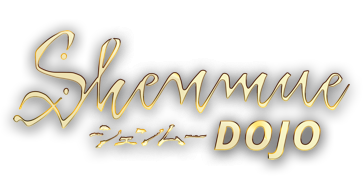Just to add to my previous post:
Shenmue 3 is packed with deep references to the original games that your average fan wouldn't even remember. I about lost it when Ryo asked Goro how Mai was doing and whether Hisaka approves of their marriage, or Ryo thinking of Fangmei when he sees a cat at Man Yuan Temple. It doesn't surprise me considering that Shenmue 3's Kickstarter development footage shows the first two games sitting on staff's desks and Yu almost always having the Akira RPG script books to hand, so we know these materials were being constantly referred to.
So given all that, I really find it hard to believe that Yu is able to recall something like Fuku-san's love for Akemi or that people fish and gather herbs in Bailu, and then proceeds to forget the entire central mystery of his main story. The mirrors being a key to a lost treasure is reiterated along with Lan Di being Sunming Zhao's son which, as explained by
@xatruio, I think is more just to refresh the more casual fan's memory after 20 years. I'd consider myself a diehard Shenmue fan, and even I forgot some big details like Iwao training with Zhao in Bailu.
It's possible the current set of mirrors are a parallel to an ancient legend, which explain Shenhua's nostalgic feelings of Luoyang (possibly retconned) and her "hundreds of birthdays" remark - as well as the flashback scene in Shenmue 2 where the Shenmue tree Shenhua was residing under was either some other location or some other time period.
I'm inclined to believe this interpretation, personally. Shenhua says her village tells stories of an ancient Emperor who had mirrors made for him from Phantom River Stone which rulers fought over for their hidden power. When I played this part in Shenmue 2, I interpreted what she was saying in two ways, 1) The Dragon and Phoenix mirrors now owned by Lan Di and Ryo are these same ancient mirrors, or 2) Legends of many mirrors and emperors have existed through ought Shenmue's history, making this a cyclical tradition, and the current set owned by Lan Di and Ryo is the latest in this ongoing mystery.
I think the only real blatant contradictions I encountered in my playthroughs seem to be made more because of a stylistic choice: The Sword of Seven Stars now being a dagger instead of Excalibur, Shenhua's house having an extra room, the fashion sense of the Bailu residents and Shenhua's redesign both in her outfit and having a bit more attitude (which is fine, honestly, I'd rather Shenhua adopt a bit of sass for the remainder of this quest to make for some entertaining moments with Ryo and Ren than stay an innocent maiden walking around Las Vegas-inspired shopping districts dressed in rags. I'm currently playing Skies of Arcadia for the first time, and honestly, Fina constantly apologising all the time for almost breathing really makes me want to Harpoon Cannon her straight into the Dark Rift).
